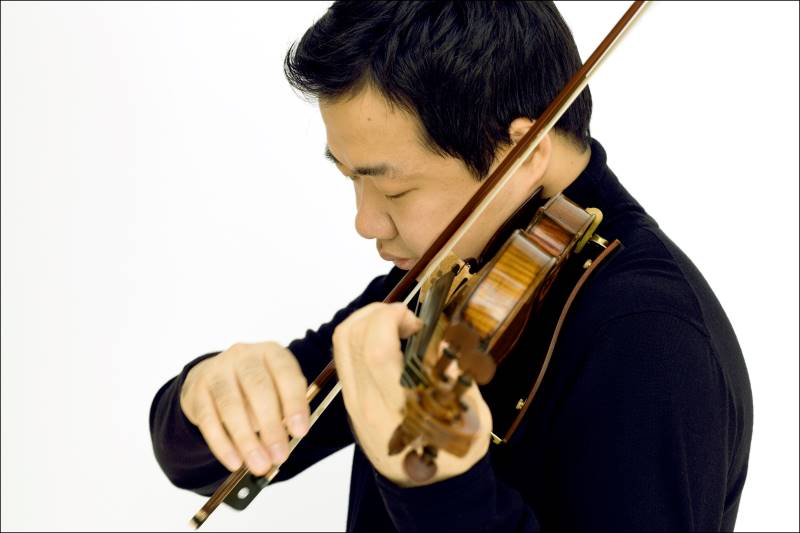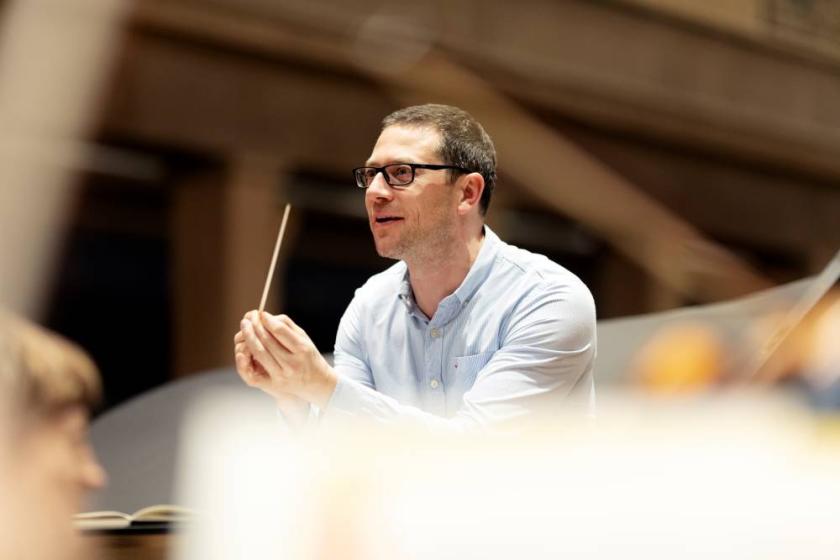As the conductor of English National Opera’s 2018 production of Porgy and Bess, there can’t be many maestros in the UK who can currently match John Wilson’s knowledge of that extraordinary score. And there are surely none who can rival Wilson’s understanding of – and passion for – the work of the great interwar Broadway and Hollywood arrangers (he built an entire orchestra around them, after all). Which is one way of saying that if you’re looking for an interpreter of Robert Russell Bennett’s 1942 “Symphonic Picture” of Gershwin’s opera, Wilson pretty much covers all the bases.
So it seemed fair to expect an idiomatic performance, and as the opening item in this packed midweek concert with the City of Birmingham Symphony Orchestra (if Omicron anxieties are supposed to be deterring concert audiences, they clearly don’t worry the matinee crowd) it was certainly that, right from William Morley’s opening trumpet solo - mellow, smoky, curling lazily on the afternoon air. The context, however, was utterly uninhibited; a blockbuster, Technicolor reading in which Wilson brought the banjo player to his feet for "I Got Plenty O’ Nuttin’ "but unleashed such steely rhythmic violence in the storm sequence that Catfish Row seemed momentarily to have slipped into the world of The Miraculous Mandarin.
Doubtless that was the whole point of placing Gershwin as the opener for Glazunov’s Violin Concerto and Rachmaninov’s Third Symphony. This wasn’t just about claiming Gershwin for the classical tradition, but about positioning the other composers in their wider 20th century context too: two Russian colleagues, one rejoicing in pre-Revolutionary sunshine; the other trying to reorient himself in a world of exile, celebrity and – of course – the melodies of Gershwin (by all accounts Rachmaninov was quite the Paul Whiteman fan).
A smart bit of programming, then, and Wilson drew his parallels forcefully. Gershwin’s hurricane found an echo in the explosions that destabilise each of Rachmaninov’s three movements. Timpani blows had the force of artillery fire, while the brass hurled great blasts of syncopated sound like some malevolent, mechanised big band. That rhythmic verve is one reason we come to hear Wilson, and the CBSO were on point: the fugal episode in the finale was positively athletic. Throughout, though, there was a sense of something deeper, and not just in the string playing, which was as lush and as supple as you could hope for. (The violins’ very first note came with a swoonsome portamento).  But all the silk plush in the world can’t dilute the melancholy in this great (and still woefully undervalued) symphony, and Wilson found a convincing path between Rachmaninov’s quicksilver mood-changes: numbed sorrow, martial bravado, skyscraping euphoria. And, of course, an aching, all-pervading nostalgia. The final apotheosis of the first movement’s great lyrical second subject was lustrous, with the massed strings caressing the melody as one. But underneath, you could hear the brass and woodwind chords shifting uneasily; ominous clouds, throwing shadows of gun-metal and purple. The transparency of the string sound and the clarity of the woodwind articulation made that kind of expressive subtlety possible. It’s not something you hear every day, but Wilson makes it seem instinctive.
But all the silk plush in the world can’t dilute the melancholy in this great (and still woefully undervalued) symphony, and Wilson found a convincing path between Rachmaninov’s quicksilver mood-changes: numbed sorrow, martial bravado, skyscraping euphoria. And, of course, an aching, all-pervading nostalgia. The final apotheosis of the first movement’s great lyrical second subject was lustrous, with the massed strings caressing the melody as one. But underneath, you could hear the brass and woodwind chords shifting uneasily; ominous clouds, throwing shadows of gun-metal and purple. The transparency of the string sound and the clarity of the woodwind articulation made that kind of expressive subtlety possible. It’s not something you hear every day, but Wilson makes it seem instinctive.
If the Glazunov didn’t hit quite the same sweet spot of effortless expression, that might have had something to do with the soloist Ning Feng (pictured above). A violinist in this concerto has two main tasks: to sing and to sparkle. Feng did both, launching into his opening melody with the sort of throbbing, gamey G-string tone that we’re apparently no longer meant to describe as “Russian School”. The razzle-dazzle of the finale was all there too.
Feng’s stratospheric passagework danced, glittering, around the glockenspiel and flutes, and he scattered left-hand pizzicati like fistfuls of diamonds. Yet Feng’s intonation occasionally distorted under the weight of a down bow, and there were moments when those agile fingers seemed to be running away with him. You could hear Wilson and the orchestra adjusting on the hoof; there was some skilful express tailoring going on. The result might not have been a perfect fit, exactly, but it emphatically wasn’t off the peg.













Add comment